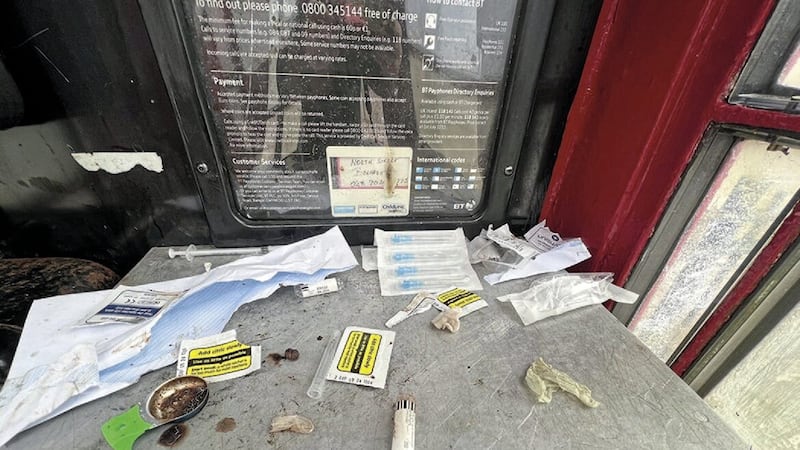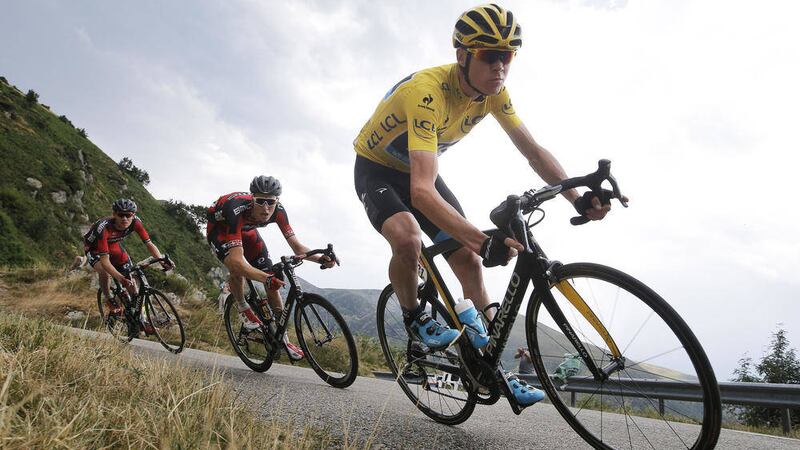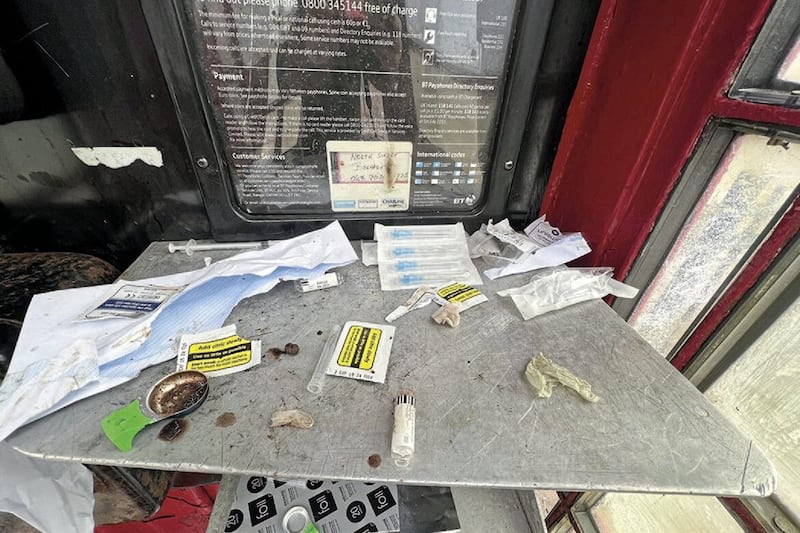EVEN before the pandemic, it was obvious that Belfast’s drug problem was getting worse.
Walking down Royal Avenue in the morning, it was common to see drug paraphernalia and used needles on the pavement.
The Cathedral Quarter became a place where addicts, fearful of being identified in their own tight-knit communities, could take drugs in relative safety.
Almost three years ago, leading A&E consultant Dr Aisling Diamond told The Irish News's then health correspondent Seanin Graham that heroin use in Belfast had "got hold".
Dr Diamond warned that the number of people seeking emergency treatment for heroin overdoses had reached "frightening" new levels - with cases seen on an almost daily basis.
Drug addiction affects a cross-section of society and across urban and rural communities.
In Dr Diamond's own words the patients she was seeing were "a whole mixture of people - they aren't young males wearing grey tracksuits".
But following the first Covid lockdown, it became clear that there were many more vulnerable people on the streets, some suffering from addiction issues.
And the problem has only got worse.
Used needles frequently litter disused phone boxes, car parks and other public spaces around the city.
Heroin use has risen in Belfast over the last decade, partly due to the introduction of highly organised drug dealing networks which have offered better availability of the drug.
But the situation is hugely complex.
As campaigner and SDLP councillor Paul McCusker said last week, many users take a cocktail of drugs, not just heroin.
Since the start of January, 35 deaths have been linked to drug overdoses.
In the last two months alone, at least 15 drug-related deaths have been reported.
Not all of those who died were homeless.
There are a complex set of circumstances behind every one of those deaths.
More importantly, each person who lost their lives has left behind grieving loved ones.
But it is clear there is much work to be done.
A meeting at Belfast City Hall last week explored emergency measures including a medically-trained responder who could help people overnight and at weekends when other services are thin on the ground.
Drug charity Extern and Mr McCusker have already called for a facility in Belfast which would allow users to take intravenous drugs under supervision.
The facility would enable people to get access to care, including blood tests, wound dressing and mental health support.
Staff could respond immediately to anyone at risk of an overdose.
While such facilities are already in use in the US and some European countries, there are none in the UK.
It is clear that a sea-change is needed in how our society treats people with addiction.
Mental health issues and addiction often go hand-in-hand. Yet treatment programmes often try and separate the two.
The British government's former drugs adviser, Professor David Nutt, has previously questioned why addiction and mental health concerns are treated separately when "the overlap is enormous".
The criminalisation of drugs remains a huge issue.
In 2020, Scotland saw 1,339 people die from a drug overdose - the highest in Europe.
Last week, the head of Scotland's drug deaths taskforce said 50 years of imprisoning people for drug possession had not worked.
David Strange, a former chief inspector of prisons and an ex-chief constable, said drugs should be treated as a public health, not a criminal concern.
"We've had the Misuse of Drugs Act for 50 years and we've tried locking people up for possession of drugs and we just know that that is not the solution,” he said.
"This is an issue of addiction, which needs treatment, care and support, and compassion - not stigmatisation, discrimination and criminalisation."
On Saturday, a major rally marched down the Antrim Road to Belfast City Hall, calling for Stormont to act on the drug crisis.
With no assembly or fully-functioning executive, there is little that ministers can practically do - all the more reason for the DUP to stop its protest.
But emergency measures must be taken to prevent drug deaths from spiralling even further.
It is vital that we set aside social stigma over drug use and do everything possible to help people in distress.
Those suffering from the horror of drug addiction must be treated with the respect and compassion they deserve.








